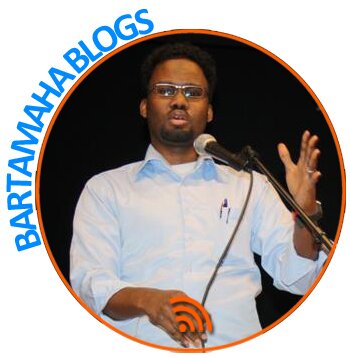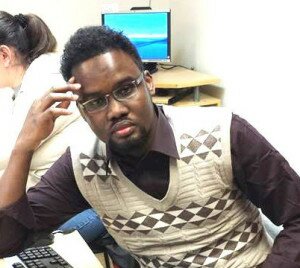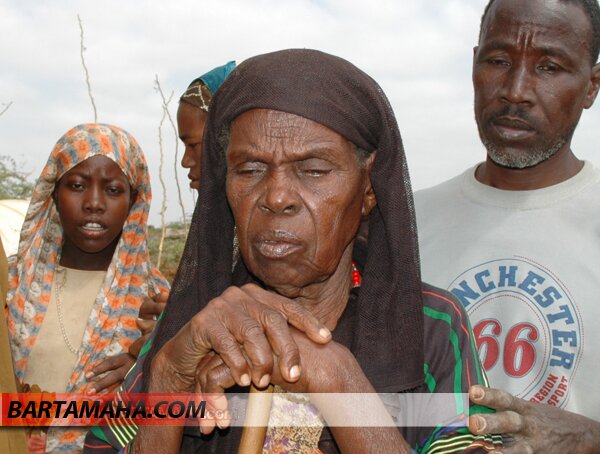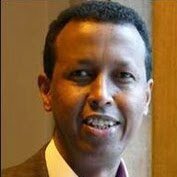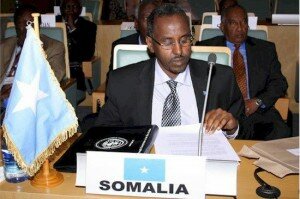Somalia: Breaking Away From Intellectuals’ Legacy of Corruption, Clan and Kleptocracy
Analysis
 Can a new generation of Somali intellectuals fix the mistakes of its predecessors and offer a brighter future for Somalia?
Can a new generation of Somali intellectuals fix the mistakes of its predecessors and offer a brighter future for Somalia?
‘Where the lead camel goes, so shall others’. So goes the Somali proverb, describing the tendency of humans to unquestioningly follow those in authority even if such individuals are leading them astray.
This effect is, of course, universal. But it does aptly reflect the phenomenon in Somalia in which where the first generation of post-independence political, professional and intellectual elites went, so did the second. As ever, there are exceptions, but they were few and far between.
A culture of corruption
As Somalia was approaching independence in 1960, the pursuit of clan and personal agendas was already beginning to eclipse plans to build robust institutions that might sustain the young nation.
By independence, Machiavellian individuals exploiting the newly-founded state’s naivety and lack of experience in government, as well as the gullibility and groupthink mentality of clan-loyalists, had set the groundwork for the culture of institutionalised looting of following decades.
The impetus that set this frenzy in motion sprung from questions surrounding who it was that had the legitimate right to inherit residential properties left behind by the Italian colonial power.
Adan Abdulle Osman, the first president, adamantly opposed proposals to distribute the mansions and villas as private properties to a few privileged individuals within the circle of power. He forewarned that such behaviour would not help the nation and would motivate the new power-brokers to “think like the colonial masters”.
But his warning was not heeded. Treating national assets as spoils in this way set a precedent that legitimised corruption and ensured that almost all high government officials up until the civil war which began in 1991 owned at least a mansion, a villa, or the equivalent in cash. This corrupt sub-culture systematically corroded trust in the state and become the fuel that kept clan-conflict burning.
And contrary to common understandings, corrupt officials are not only those who kleptocratically steal revenues and resources in power; it also includes those who practice nepotism or give themselves extraordinary privileges, those who employ selective justice, those who reject government policies, and those who prevent the building of institutional checks and balances.
Over the last two decades in Somali politics, consecutive generations of trend-setters and imitators have allocated a great deal of their intellectual energy and ingenuity to myopically advancing one personal or clan interest or another at the expense of the national interest and the common good.
Putting the I in Somalia
This was especially the case amongst those who were considered intellectuals in various facets of life. Instead of fulfilling their role as the young nation’s critical voice and offering viable solutions to saving the fragile state, these people merely assumed the role of enabler for one despot, political overlord, sectarian group or another. The justification that ‘everyone else is doing it’, meant that all that mattered was high posts and loot.
Perhaps due to the colonial inferiority complex of their mentors in the preceding generation, the second generation of post-independence intellectuals seemed to value symbolism much more profoundly than substance. One had to look the part or play the part, however dysfunctional in reality, to gain external approval. That desperate dependency blurred, if not subjugated, their objectivity.
In that context, it is not surprising that there are intellectual and professional chameleons that, on the one hand, match well against their peers in terms of scholarship, academic discipline as well as knowhow and production; but, on the other, persistently cling to a clannish mentality and resort to uncompromising zero-sum games when it comes to advancing matters of national interest. Sadly, it is this duality that has until now defined the average Somali intellectual.
A retrospective analysis of what went wrong in Somalia highlights the pathological role that this group of professionals and intellectuals has played in perpetuating two decades of societal haemorrhage. More so than the warlords, political opportunists, economic parasites and neo-Islamists, the intellectual class has contributed to the balkanisation of Somalia, both physically and psychologically. No other group has consistently sown negativity for the past two decades more so than Somali intellectuals.
As an oral society that met many challenges in its transition to modern statehood, Somalia’s indigenous historical figures – often illiterate public intellectuals, poets, mullahs, bards and lyricists – are by and large replaced by intellectually destructive do-nothings.
The intergenerational new breed
However, breaking this vicious cycle of negative emulation is a new hope-inspiring generation. This group is made up of the few who avoided following the lead camel and some younger visionary activists who have refused to surrender to negativity and become handicapped by hate. This new generation has been actively initiating new ideas for Somalia’s revival and recovery through writings, lectures, poetry, and political cartoons.
Nothing reflects the conscience of this promising generation more eloquently than these verses composed by Ilhan Dahir, a young Somali-American poet, for the bitter sweet occasion of 50 years after independence:
“Men who wash their sins off with blood
will receive no absolution …
Let’s create vibrations that turn into waves
let’s flood the shores of the East with the words that we say
Let’s forge a path to unity; Let’s never sway
because our differences have held us captive far too long
And the one who was most right is still very wrong!”
Somalia has entered a new phase of introspection, reinvention, and rebuilding. This, needless to say, makes it incumbent upon all Somalis of goodwill and vision to participate in the ongoing construction of a viable, just, peaceful, and progressive state. Whether or not the old guard will finally redeem themselves by participating and contributing positively to this process remains to be seen.
Abukar Arman is Somali Special Envoy to the United States. Before his current role, Arman was a widely published political analyst and a community advocate. His focus is post civil-war Somalia, Islam, and US foreign policy toward Africa and Middle East. Arman is also one of Ohio Humanities Council’s lecturers. Follow him on twitter @AbukarArman.
Comments
comments
 Calendar
Calendar












